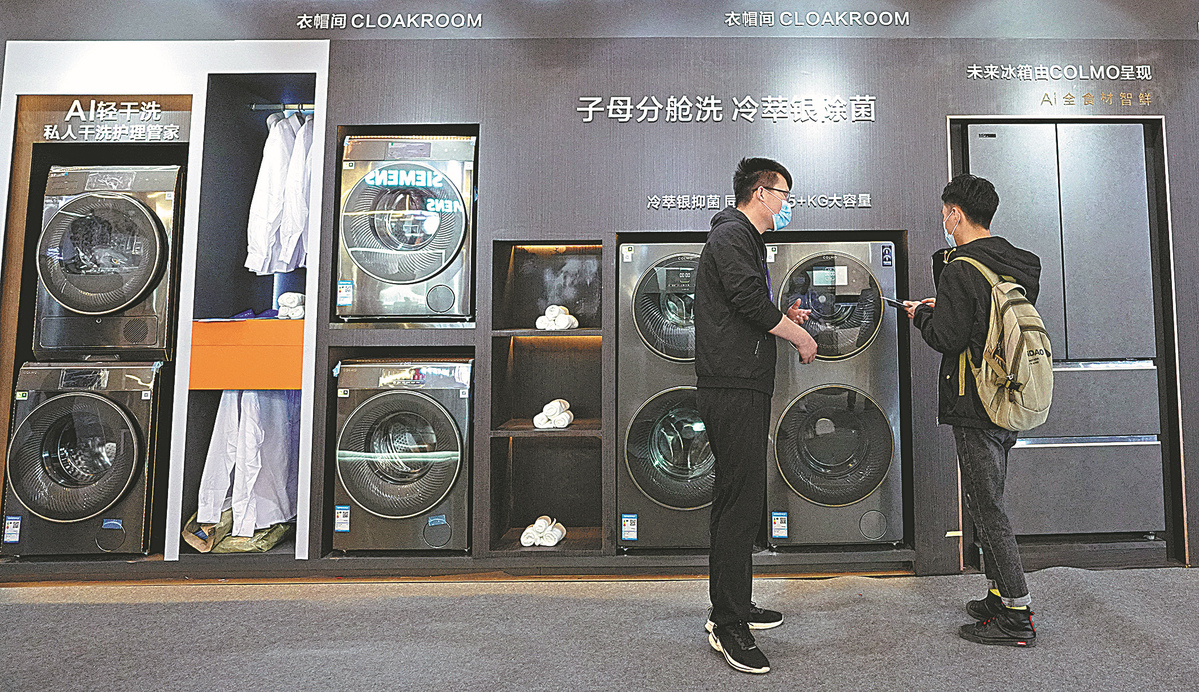Chip supply key to manufacturers


Ensuring stable supplies of computer chips and other important components and raw materials will be key to the sustainable development of Chinese manufacturers, according to deputies to the National People's Congress, China's top legislature.
"We need to encourage overseas automotive chip companies to invest in China and domestic carmakers and components companies should optimize the layout of supply chains to minimize the impacts of chip shortages," said Zeng Qinghong, a deputy to the 13th NPC.
Lack of independent research and development, high dependence on imports and lagging development of the industrial chain are the core problems faced by China's chip industry, said Zeng, who is also president of GAC Group, a leading auto manufacturer based in Guangzhou, capital of Guangdong province.
He said that due to the shortage of automotive chips, Chinese carmakers had to cut production of vehicles by about 2 million units last year.
"Chinese automakers need to strengthen research in core technologies and areas such as manufacturing of chips and packaging, to break through the technical bottleneck," Zeng said.
Global semiconductor companies are being encouraged to invest in China and carry out cooperation with local companies to jointly contribute to the stabilization of the global integrated circuit supply chain, according to the country's top industry regulator.
"We will continue to provide policies and a market environment suitable for domestic and foreign integrated circuit companies and treat all market players equally," Tian Yulong, a spokesman for the Ministry of Industry and Information Technology, told a recent news conference.
The shortage of automotive chips has gradually eased, with the world's major chip companies beefing up production and the supply capacity of domestic chip companies also growing, Tian said.
The shortage of chips also affected China's home appliances industry, said Li Jinbo, an NPC deputy who is also director of the innovation research institute for household air conditioners at Midea Group.
Midea, a home appliances giant based in Foshan, Guangdong, has developed strong demand for home appliance chips, Li said.
"Chinese home appliances companies need to invest more in independent research and development of semiconductor chips, to reduce impacts brought about by the global shortage of the materials," he said.
Midea has established two subsidiaries that are mainly engaged in research and manufacturing of semiconductor chips, Li said.
"With higher demand for intelligent and personalized household appliances, it is imperative to further accelerate scientific and technological innovation in the integrated circuit industry," he said.
Midea's two chip subsidiaries, Misiliconn and MR Semi, have started mass production of chips for home appliances, Li said.
MR Semi, established in Shanghai in 2018, produced about 10 million chips last year and is expected to produce 80 million this year.
"The chips are not only used for Midea's full range of products, but also sold to key domestic and overseas clients," Li said.
- 'Ice City' warms up for winter Games
- China takes lead in global growth of IP
- Infrastructure restored in aftermath of Dingri earthquake
- Chinese actor located safely after disappearance on Thai-Myanmar border
- Universities open subsidies for students affected by earthquake
- China to improve intellectual property rights





































